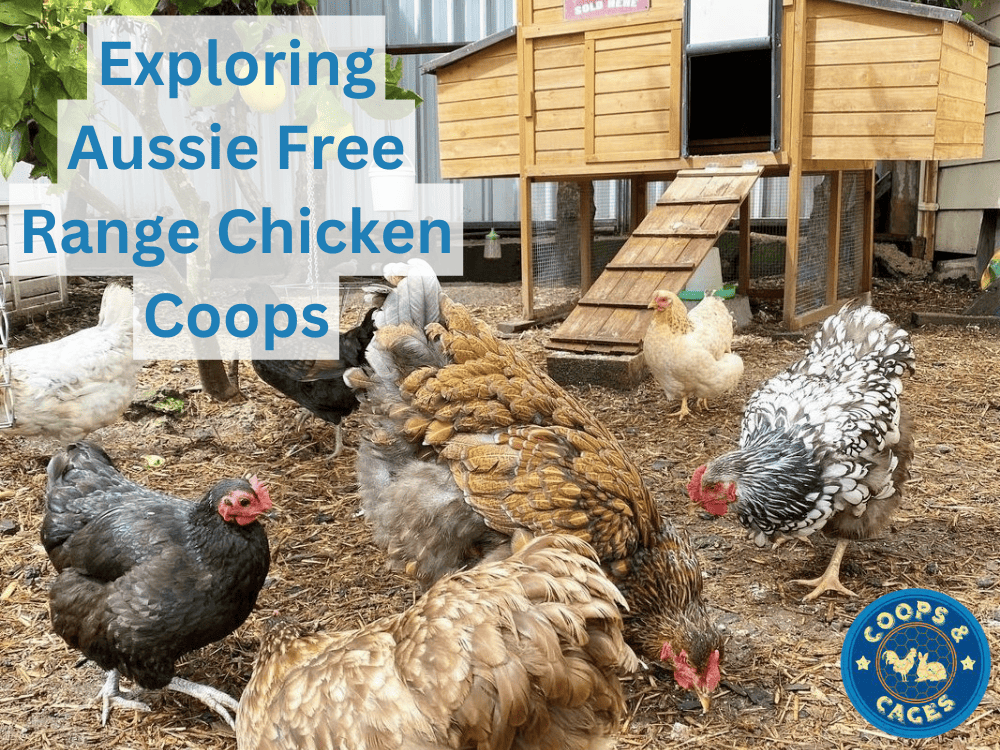Chickens, Interesting
Free Range Chicken Coops
The concept of free range chicken coops has become increasingly popular in recent years and for good reason.
Offering a range of advantages, free range chicken coops are designed to provide chickens with more than just shelter; they create a natural and fulfilling environment where hens can lead healthier, happier lives.
If you’re curious about the numerous benefits of free range chicken coops and the positive impact they can have on both your feathered friends and your own well-being, you’ve come to the right place.
In this blog, we’ll explore the world of free range chicken coops, uncover their many perks, and share valuable insights to help you make the most of this rewarding approach to poultry keeping.
Understanding Free Range Chicken Coops
If you’re thinking about raising chickens, one term that often crops up is ‘free range’. But what does this mean?
A free range chicken is a poultry bird that is allowed to roam outdoors in open spaces, enabling it to engage in natural behaviours and forage for food, in addition to its regular diet.
Free range chicken coops are designed to let your chooks roam freely during the day. This contrasts with traditional setups where chickens spend most of their time in an enclosed coop.
The coop typically includes a secure, enclosed area to protect the chickens from predators and harsh weather conditions, as well as allowing access to the outdoors allowing them to move around freely.
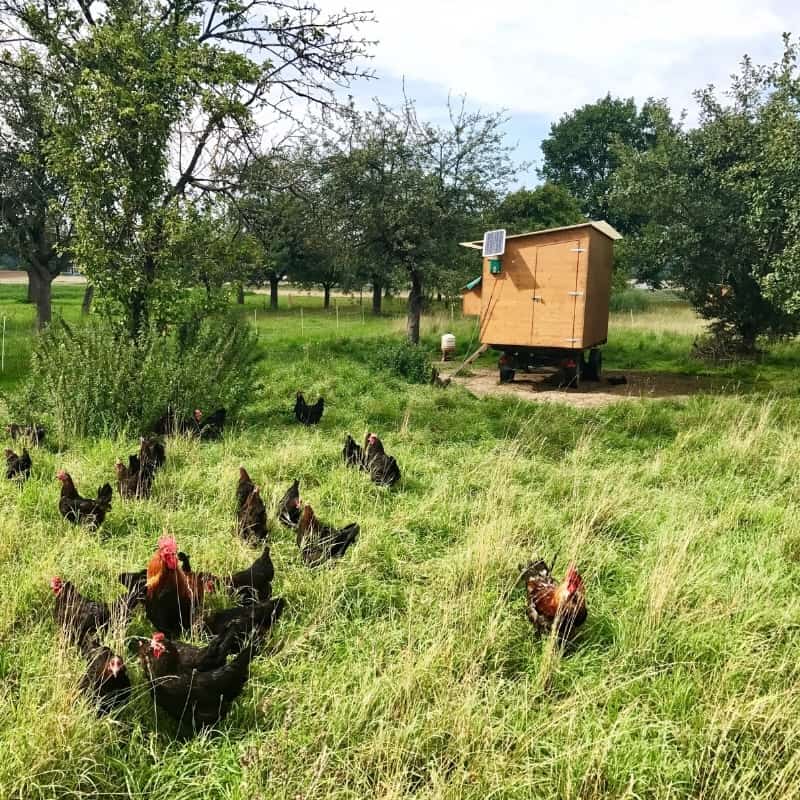
Benefits of Free Range Chicken Coops
Choosing a free range chicken coop for your chooks has several advantages.
– Enhanced animal welfare: Free-range coops provide chickens with more space to move around and engage in natural behaviours, leading to improved well-being. Chickens can also forage for insects, plants, and other food sources in an outdoor area, which can lead to a more balanced and nutritious diet.
– Better egg and meat quality: Chickens that have access to a more varied diet and exercise tend to produce eggs and meat with better flavour and nutritional profiles.
– Reduced stress: More space and outdoor access can reduce stress and aggressive behaviours among chickens.
– Healthier living conditions: Outdoor access can lead to cleaner living conditions within the coop, as chickens can disperse waste more widely.
– Reduced disease transmission: Reduced close living arrangements and access to the outdoors can help reduce the risk of disease transmission among chickens.
RSPCA’s campaign on Free Range Eggs highlights this trend towards kinder farming practices.

Planning Your Free Range Chicken Coop
Building a free range chicken coop is more than just erecting a structure. It requires careful planning and understanding of your chickens’ needs.
Space Requirements
The first thing to consider is space. Backyard chickens need room to roam, peck, and stretch their wings. According to the RSPCA Australia guidelines, each hen should have at least 4 square metres of outdoor space.
Selecting the Right Location
The location of your coop can significantly impact the health and productivity of your flock.
A sunny spot with good drainage will help keep chooks warm in winter but remember to give them access to shade during hot Aussie summers.
Design Considerations
A well-designed coop not only makes life better for your hens but also eases daily chores like feeding, cleaning, and egg collection.
Coops & Cages offers a great range of chicken houses. Their coops are designed with easy access doors, laying boxes, pull out trays for easy cleaning as well as strong mesh to protect from predators.
They also offer a mobile chicken coop, also known as a chicken tractor, allowing you to move the coop around your yard as needed.
Somerzby is another Australian brand offering some backyard chicken coop design options for free range chickens.
The Cabana coop offers a safe haven for free range chickens to roost at night, or if you are after extra protection you can check out the Deluxe Mansion with the extra security of a mesh floor.
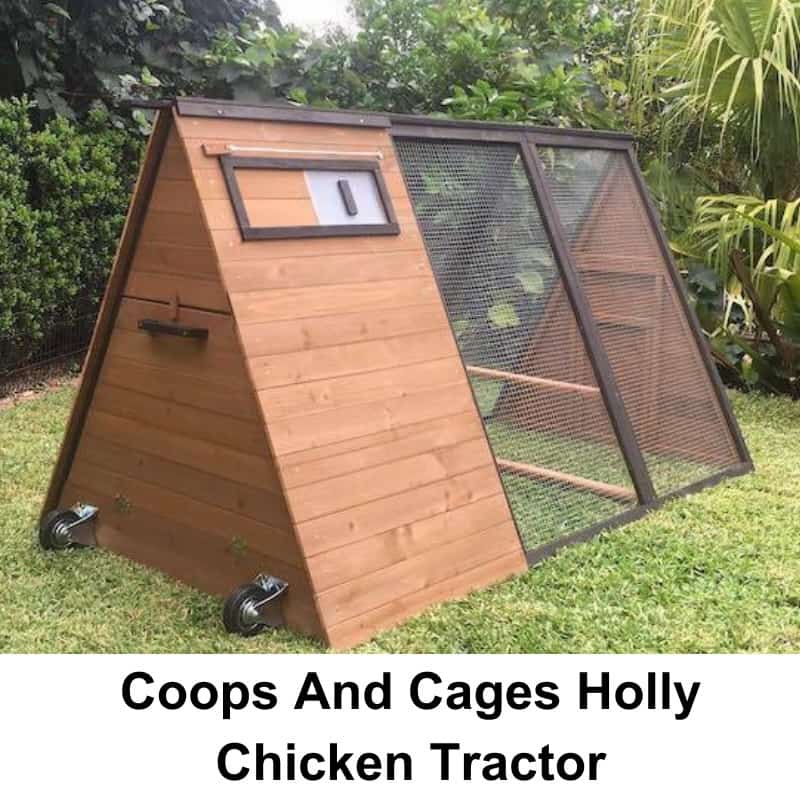
Best Practices for Maintaining Free Range Chicken Coops
Caring for a free range chicken coop doesn’t have to be tricky. Keep the coop in order by frequent cleaning, pest prevention and regular maintenance.
Cleaning Routines
Maintain cleanliness in your coop by removing droppings daily. This not only keeps things tidy but also helps prevent diseases.
Pest Control
Pests like mites and lice can cause health problems for your chickens if left unchecked. Use natural deterrents such as wood ash or diatomaceous earth in nesting boxes. Regularly check your birds for signs of infestation.
General Upkeep
Keep an eye out for wear and tear on the coop itself – repair any damage immediately so predators don’t get an opportunity to harm your birds.
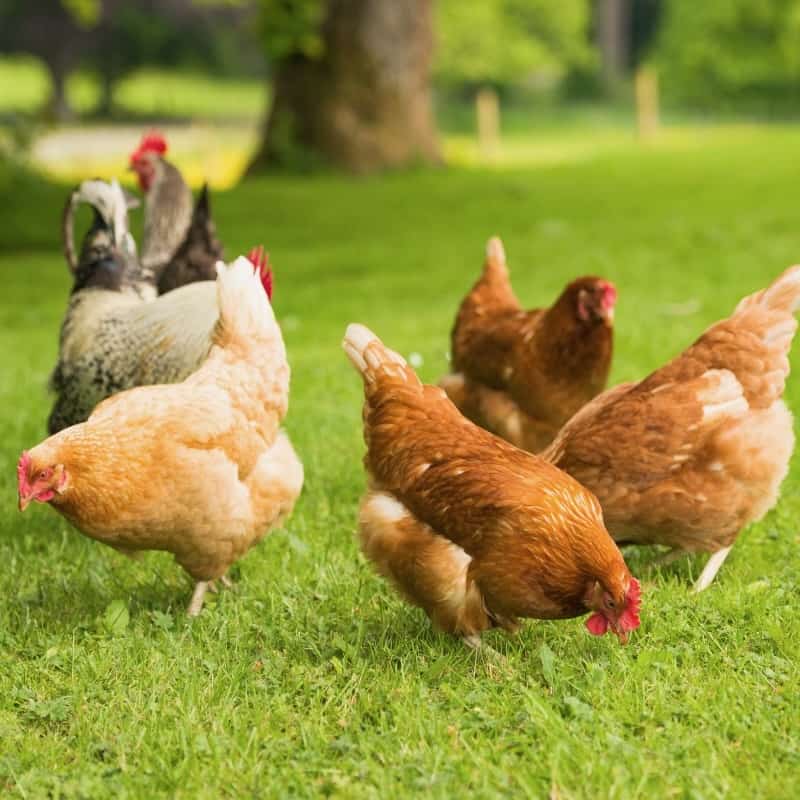
Potential Drawbacks and Solutions
Even with the many benefits, free range chicken coops aren’t without their challenges. But don’t worry, we’ve got you covered with solutions too.
Foxes and Other Predators
A major drawback of a free range coop is its vulnerability to predators like foxes. A sturdy fence and a mesh floor can help deter them, but for more peace of mind consider an automatic door that closes at dusk when these crafty critters are most active.
Disease Spread
Free range chickens may be exposed to diseases from wild birds or soil parasites. Regular health checks can nip problems in the bud early on. Implementing a good biosecurity plan, such as quarantining new birds before introduction to your flock, helps prevent disease spread.
Egg Hunting
Chickens love laying eggs in cozy corners which might mean going on an egg hunt every day. Training your hens to use nest boxes will make sure you get those fresh eggs without playing hide and seek.
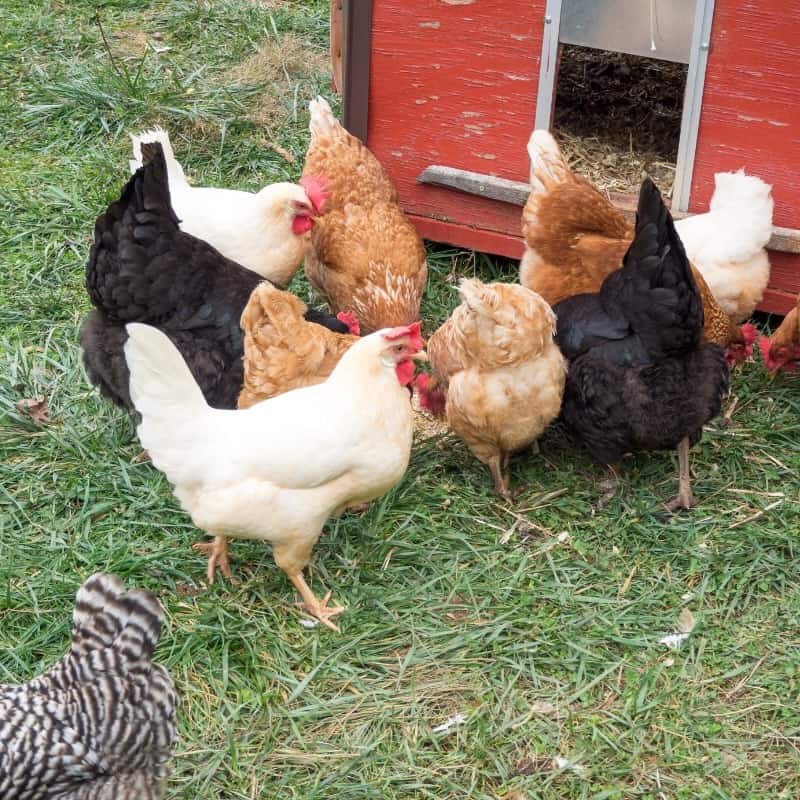
FAQs in Relation to Free Range Chicken Coops
How Big Does A Chicken Coop Need To Be For Free Range Chickens?
A coop for free-range chooks should have at least 1.5 square metres per bird.
Can Chickens Survive Just Free Ranging?
Yes, but they still need shelter from predators and weather extremes. A well-constructed coop is crucial.
Do Free Range Chickens Need A Coop?
Absolutely. Coops provide safety during night-time hours or harsh conditions even if your chooks are primarily free-ranging.
How Do You Keep Chickens Free Range?
Maintain a secure outdoor area with natural feed sources, a clean water supply, and sturdy coops for restful nights.
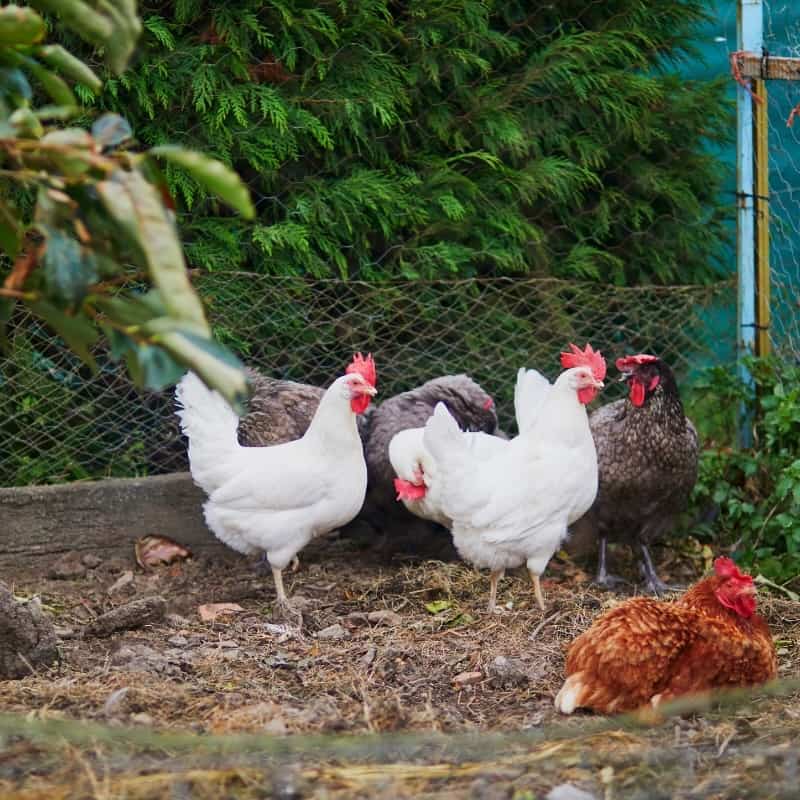
Jordan’s Wrap
Free range chicken coops offer many benefits for both chickens and their keepers. With happier and healthier hens, you can enjoy more nutritious and delicious eggs and meat, all while contributing to a more ethical and sustainable food system.
As you venture into free range coop ownership, remember to prioritise your flock’s well-being, protect them from predators, and provide essentials like clean water and a balanced diet.
So, go ahead, give your chickens the freedom to thrive, and enjoy the many rewards that come with it.



